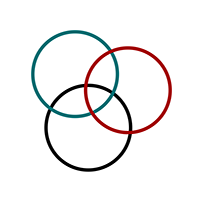Burn injuries impact both survivors and families and require the efforts of a burn team for optimal recovery.
There is no shortage of materials and resources to help educate the public, first responders, fire fighters and medical personnel on the importance of prompt and appropriate burn treatment. Multiple examples of these resources are available in this website. Along with immediate and appropriate treatment, it is important to also provide ongoing support and treatment to ensure that burn survivors successfully heal and return to their families and communities.
It is important to provide ongoing support and treatment to ensure that burn survivors successfully heal.
National Organizations for Burn Recovery Resources
The organizations below offer links to support and aftercare information and resources. Additionally, tools – including handouts, videos, and other support materials – are available to help with presentations to survivors and families in need of support.
Mental Health Resources for Burn Recovery
Burn survivors and/or their family members may find mental health services helpful in providing support and assistance with post-burn recovery. Counseling services can address a host of issues including post-traumatic stress, grief, loss and other damaging reactions to the burn incident.
Organized peer support can also be a beneficial resource in psychosocial recovery from a burn injury, especially for those who work in the burn care continuum.
Those in the counseling field are trained and equipped to address grief, loss and other adjustment issues that can accompany the experience of a trauma. Burn centers, family physicians, mental health organizations or burn injury-related foundations can also assist in locating appropriate providers. It is important to get the help needed for optimal recovery. Below are a few of the many organizations available to assist with burn recovery.
Additional Resources for Fire Fighters
The culture of the fire service can be problematic for fire fighters who suffer burn injuries. The pressure to return to work and effectively function is tremendous. The admission of needing mental health services can be erroneously perceived as weakness and an inability to effectively serve the fire service.
For these reasons, include prompt and effective critical incident debriefing and follow-up post-traumatic stress assessment in all SOGs related to burn injury. Provide all members of the fire department response team with this service, since the damaging psychological effects of burns are often carried by co-workers as well as those who sustained the injury.
Include prompt and effective critical incident debriefing and post traumatic stress assessment in all SOGs related to burn injury.
Firefighters Burn Institute’s “Liaison Response Team” (LRT). The mission of this program, made up of fire fighters, is to provide assistance and emotional support to fire fighters, their families and the department following the aftermath of a burn injury. LRT members are dedicated to the well-being and recovery of their brother and sister fire fighters and understand the importance of help and emotional support during critical times. The LRT also ensures that the fire fighter’s family is taken care of by providing meals, housing or by making other special arrangements. The Firefighters Burn Institute provides resources to also assist with post recovery, including PTSD treatment, peer support groups and funding to send the fire fighter to burn survivor support conferences.
Phoenix Society’s Phoenix SOAR®. Phonenix SOAR supports burn-injured fire fighters and their families. The healing journey of a burn-injured fire fighter can have its unique challenges. We understand how the healing paths of the fire fighter burn survivor and their family can be vastly different. The fire fighter burn survivor often hopes to return to the profession where the burn injury occurred, while family members may struggle with the fear of loss. The physical recovery is challenging, but psychological recovery can be overwhelming and require time.
Northwest Regional Burn Model System: Return to Work After Burn Injury. Returning to work is an important phase of recovery after burn injury. Working has many rewards besides income. t can give you a sense of purpose and confidence, provide social opportunities, help physical and emotional recovery and improve overall quality of life and sense of well-being. Even though the word “you” is used to mean a person with a burn injury, this website is also designed for employers, clinicians and vocational counselors who are working with a person with a burn injury and want to know about the return-to-work process.
Phoenix Society: The Journey Back. The Journey Back helps kids go back to school after a burn injury. Going back to school and being with peers is a very important step in a young burn survivor’s recovery. The Journey Back is a program for parents, teachers or any caring adult who is assisting a child with a positive return to school after a burn injury or traumatic loss.
Reach out to your local burn center for aftercare resources, support and assistance.
